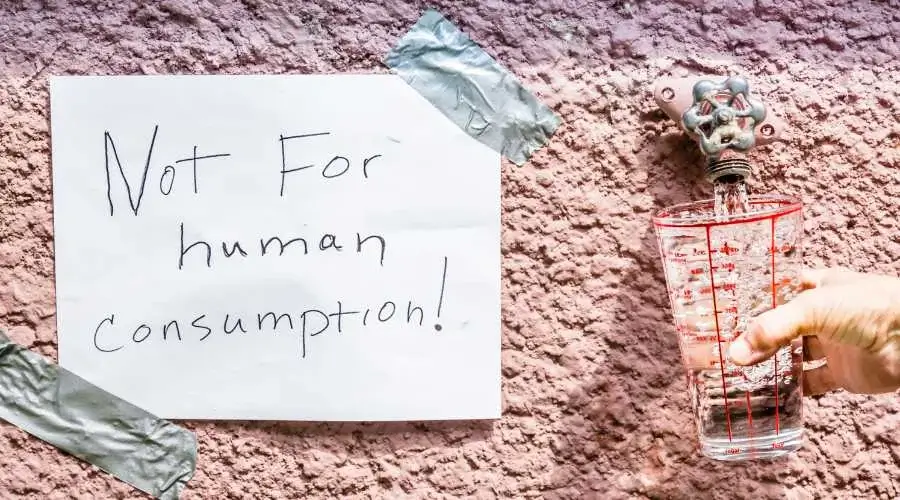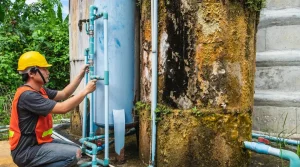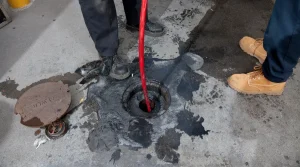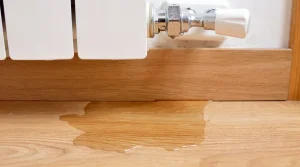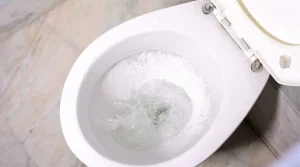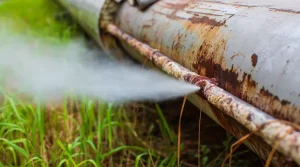Although tap water from New Jersey’s municipal sources is typically fairly safe to consume, you should still rely on your own judgment. Even the most painstakingly cleaned and processed tap water may smell odd to you or appear to be unclean for a number of reasons. A home’s faulty pipes could lead your water to become tainted even after it has been purified.
My tap water is white; why is that? What causes the metallic flavor in my water? It is simple to become overly concerned about your drinking water, and before you know it, you are too frightened to even turn on the faucet. Diagnosing your water for sure is the best approach to prevent that unpleasant sensation. You can begin with our assistance. These four simple tests can show you if your tap water contains any problems.
You Water Appears Cloudy
Clean tap water should always appear to be clear. Don’t use the water if it seems foggy or has a “milky” taste. As an alternative, wait a few minutes to see if the cloudiness goes away. The cloudiness you observed was likely caused by a harmless build-up of trapped air if it ultimately clears. Air bubbles are contained within pressed water. Your faucet releases pressure, allowing the air to exit and mix with the water as it runs out.
Cloudy water may also indicate that the water in your tap is excessively “hard.” Minerals that weigh a lot, including calcium and magnesium, are present in hard water. Though they don’t necessarily pose a threat, some minerals cause your water to get cloudy. Cloudy water indicates that your water softener is most likely not operating properly. The presence of rust, sand, or debris in the water pipes that carry your water might also be indicated by cloudy water. If you suspect that might be the case, particularly if your plumbing is older, you should have a professional inspect your pipes.
Tastes metallic in your water
One of the most frequent issues with domestic water supplies is this. If the issue persists, your water may even seem rusty or discolored. Your water probably tastes metallic because it contains metal, which is not uncommon. Iron, zinc, or manganese deposits in particular are likely to have leached into your water. Nothing prevents these particles from reaching you as metallic deposits typically seep into your water after it has already been cleaned.
It’s probable that your water heater is the problem if only the hot water smells metallic. If sediment is the source of the odor, flush your water heater to get rid of it. If your water supply pipes are leaking rust or corrosion into your water, this could explain why all of your water tastes metallic. Little flakes can be sheared off by the water as it passes through rusted pipes. Get a professional to clean and inspect your supply pipes right away. Identifying the issue and figuring out a solution will be possible.
Your Water Odors
No treated tap water should ever smell. If it does, something that shouldn’t be there is probably present in your water. The weird scents produced by various water pollutants vary. Water that tastes metallic may also smell metallic due to the same minerals. A persistent musty or moldy odor may result from algae blooms in the local water supply. An unpleasant rotten egg odor may be caused by bacteria in your water heater. Unexpected saltiness in softened water might result from using too much water-softener salt.
The best course of action to take will become clear once you determine the source of your water’s odor. For instance, you should flush your water heater if the water has a metallic or sulfuric odor. Try turning your water softener down if the water smells salty. It could be harder to get rid of a musty odor on your own. To find out if the water in your neighborhood is contaminated, talk to your neighbors. You may also search online for any remarks made regarding algae by your water provider. Another option is to scrub your taps clean. Naturally, to find the source of the issue, get in touch with your neighborhood smell excellent plumber whenever in doubt.
Stains or scum are Left Behind by Your Water
No residue or stains of any kind should ever be left behind by tap water. If the water from your tap leaves behind chalky residue or stains your sinks or bathtubs, there is a problem.
Water Stains that Look Brown or Orange
The presence of iron or copper residue in your water is indicated by these stains. It’s possible that the pipes carrying your water supply are rusted, obstructed, or corroded.
From Water, Chalky Remains
Calcium and magnesium are present in any grit that may be left behind by your tap water. Your water is too hard, as evidenced by this.
You could start by inspecting your water softener if your tap water is discolored or leaving behind scum. The issue is most likely with your supply pipes if your softener is operating properly. Especially if your water is harsh, supply pipes rust or corrode spontaneously over time. To make the issue go away for good, think about replacing your pipes.
All Los Angeles Water Issues, Solved
The possible issues with your tap water are not all included in this list. Even if your issue isn’t listed here, you can still be experiencing difficulties. While you shouldn’t worry, you also shouldn’t dismiss your doubts.
Call BJC Plumbers North Bergen for prompt, accurate responses to any water-related queries. The issue with your water can be identified by our experts, who can then provide the least invasive solution. Never question if the water you are drinking is safe to consume. Please contact us so that we can allay your concerns.

